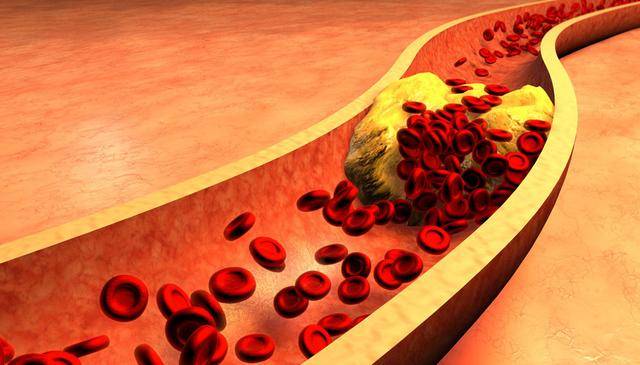Normal blood flows in the blood vessels as a red, opaque liquid that transports nutrients, nourishment, regulates body temperature, osmotic pressure, and acid-base balance. A blood clot may form at the detachment or repair site within blood vessels, possibly due to changes in the properties of the blood. Over time, these can aggregate into larger clots, potentially leading to vascular blockages.
What habits accelerate blood clot formation?
Firstly: Smoking
It is well known that smoking is harmful to health. Smoking not only damages blood vessels but also accelerates the process of vascular hardening. The carbon monoxide in smoke binds to hemoglobin in the blood, reducing oxygen levels, leading to hypoxia in endothelial cells of blood vessel walls, which can trigger atherosclerosis.
Nicotine in cigarettes is addictive, promoting red blood cell aggregation, white blood cell deposition, and increased blood viscosity, making clot formation easier. Research shows that smoking under sleep deprivation conditions can increase blood viscosity by 8 times compared to normal, making it important to quit smoking promptly.
Secondly: Staying up late
Sleeping after midnight is already considered staying up late. Prolonged periods of staying up late can lead to pathological changes in blood vessels, causing vasospasms and potentially fatal overexertion.
Staying up late disrupts the biological clock of the cardiovascular system, leading to excessive secretion of adrenaline and noradrenaline, causing vasoconstriction, increasing blood viscosity. People with cardiovascular diseases staying up late can accelerate clot formation, leading to acute heart or brain ischemia.
What foods are known as “natural thrombolytics”?
1. Black Fungus
Black fungus, a common household ingredient loved by many, is actually a “master” in preventing clot formation. It contains gelatin and lecithin, which help reduce blood lipids and absorb excess waste in blood vessels, enriching in vitamins that lower blood viscosity, promote circulation, and maintain vessel elasticity.
2. Kelp
Kelp, a popular food rich in unsaturated fatty acids and plant fiber, aids in clearing cholesterol deposits on vessel walls, enhancing cholesterol excretion, and maintaining vessel elasticity, preventing atherosclerosis and providing overall cardiovascular benefits.
3. Eggplant
Eggplant, a common vegetable, contains nutrients to protect blood vessels. Rich in vitamin P, eggplant increases capillary elasticity, reduces fragility and permeability, plays a protective role on vessels, while saponins in eggplant lower cholesterol, improve blood flow, and help prevent clot formation.
4. Garlic
Garlic not only has antimicrobial effects but also prevents cardiovascular diseases by reducing sugar and fat deposition in blood vessels, enhancing vascular permeability, preventing fat deposition, clots, and atherosclerosis. Health experts recommend consuming garlic daily for vascular protection in those with hypertension, hyperlipidemia, hyperglycemia, or cardiovascular diseases.
5. Chinese Chives
While Chinese chives have a strong odor, they are highly beneficial for health, containing nutrients that protect blood vessels. Compounds in Chinese chives aid in appetite stimulation, antimicrobial effects, and blood lipid reduction, vessel dilation, anti-thrombotic effects, and blood viscosity reduction.
6. Corn
Corn, a staple or vegetable, contains abundant unsaturated fatty acids preventing atherosclerosis, maintaining vessel elasticity due to calcium content, aiding in blood pressure regulation, lowering serum cholesterol, preventing deposition on vessel walls, and acting as a thrombus preventer.
7. Perilla Oil
Rich in α-linolenic acid, perilla oil promotes cardiovascular health by reducing LDL cholesterol, triglycerides, increasing HDL cholesterol, inhibiting platelet cholesterol deposition, preventing clot formation, vessel blockages, and atherosclerosis. Consuming 5ml per day offers significant health benefits.
8. Oats
Oats contain soluble fiber reducing cholesterol absorption, providing cardiovascular benefits. Consuming 5-10g of soluble fiber daily significantly lowers total cholesterol, LDL cholesterol. A 150g portion of cooked oats offers about 6g of soluble fiber, complemented with fruits, like bananas, for additional fiber, aiding in cholesterol reduction and waistline decrease.
To protect blood vessels and prevent clot formation, in addition to diet, prioritize physical exercise. Exercise promotes blood circulation, boosts immunity, and overall well-being. Consistency is key and avoid sporadic efforts for optimal benefits.


